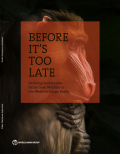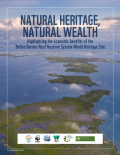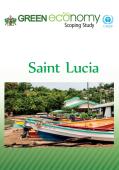


The report Green Economy Scoping Study for Saint Lucia couples an in-depth analysis of Saint Lucia’s agriculture and tourism sectors with a more general review of manufacturing, transport and construction, integrating the key elements of energy, water and waste management.
The study recommends policy reforms that can help speed up the transition to a green economy in Saint Lucia which, like many Small Island Developing States, is disproportionately vulnerable to the impacts of climate change.It also dentifies the most significant challenges for the tourism sector: the high input costs (primarily for energy, water and waste management), competing uses for environmentally sensitive areas accompanied by inadequate land use policies (particularly in coastal areas) as well as the need to diversify Saint Lucian tourism beyond “sun, sea and sand” vacations.
